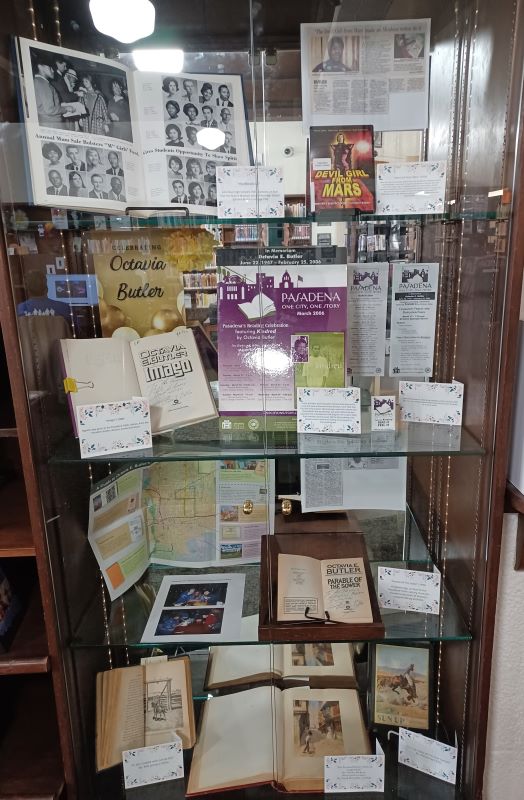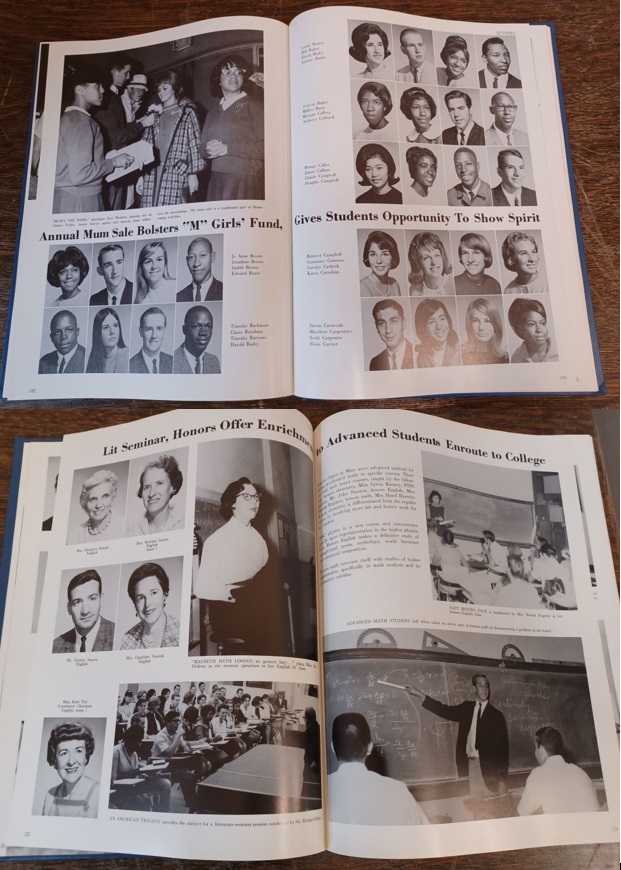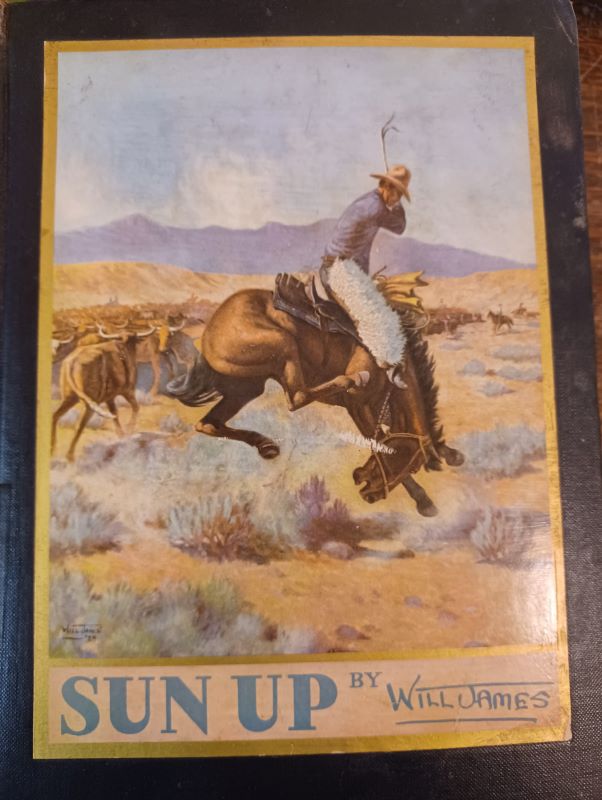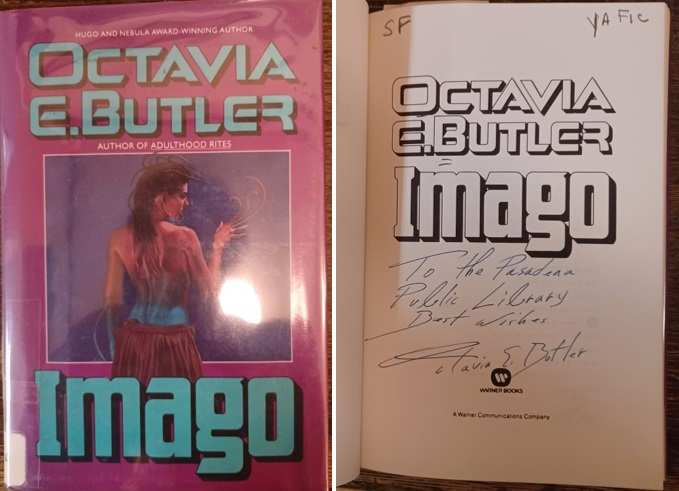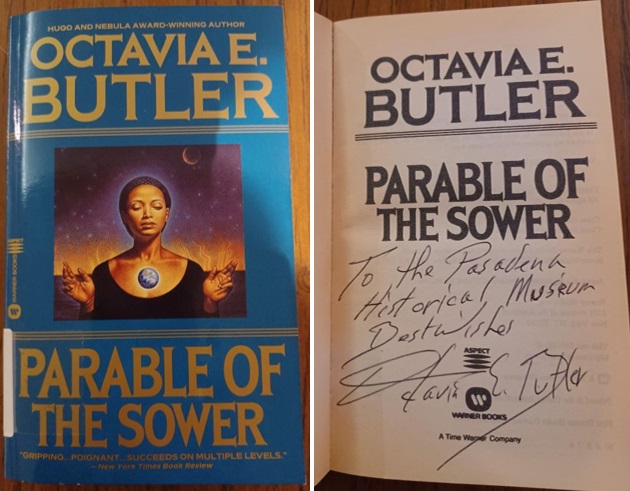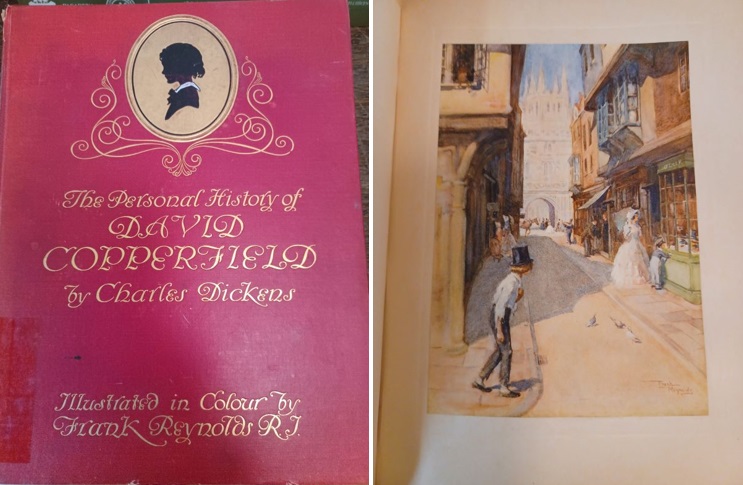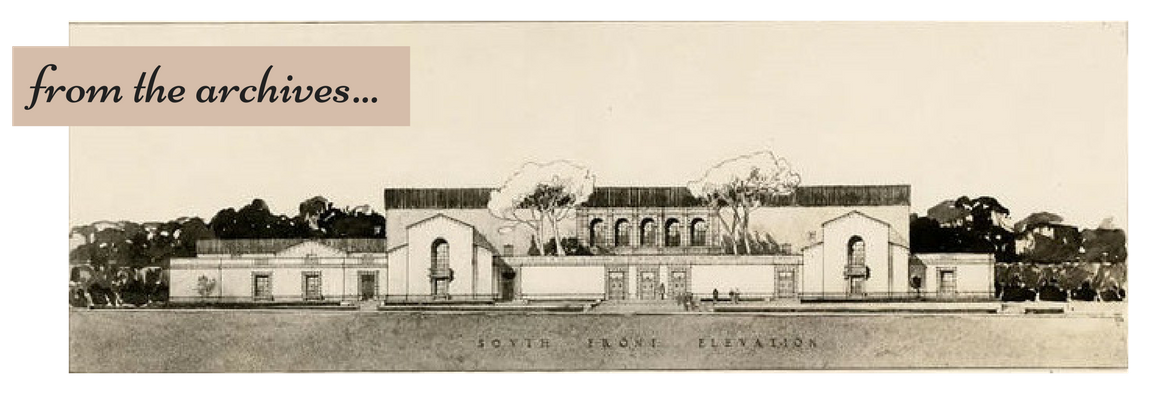This blog post was written by AnnMarie Kolakowski, Branch Manager of the La Pintoresca Branch Library
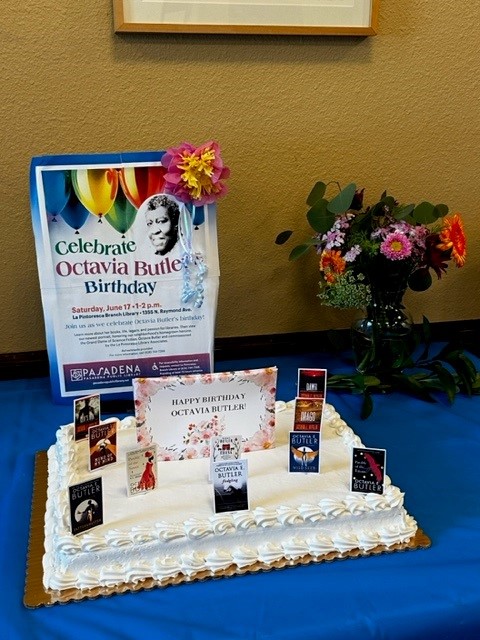
Today would have been the 76th birthday of author Octavia E. Butler. Last Saturday, June 17, 2023, the La Pintoresca Branch Library had over 100 people there celebrating the birthday of our hometown heroine. U.S. Congresswoman Judy Chu, District 1 Councilmember Tyron Hampton, and District 3 Councilmember Justin Jones all spoke about how hardworking and courageous Butler was. Nikki High, the owner and founder of Octavia’s Bookshelf, shared how Butler inspired and empowered her to seek out books that people of color could see themselves in, and elevate those books. The Dakar-Plateau Senegal Pasadena Sister Cities Subcommittee presented a donation, and the La Pintoresca Library Associates unveiled a beautiful new portrait commissioned by them and drawn by artist Pascal Rane.
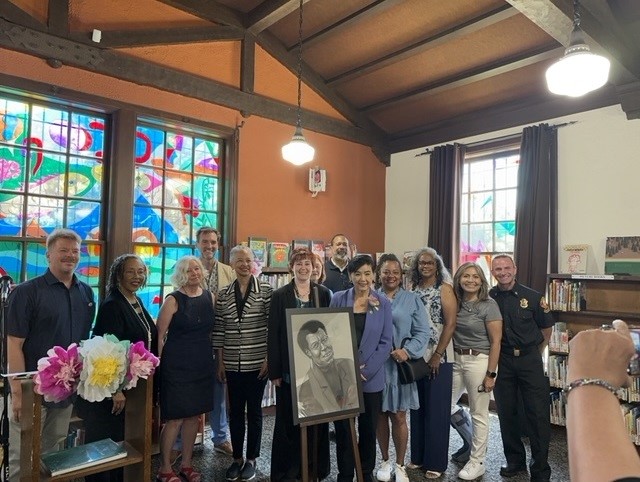
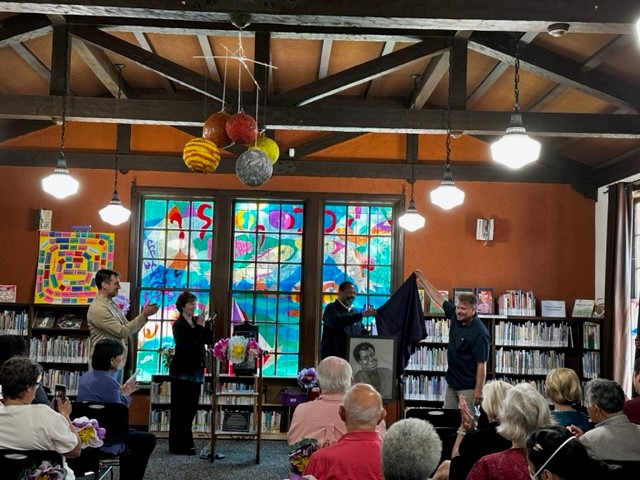
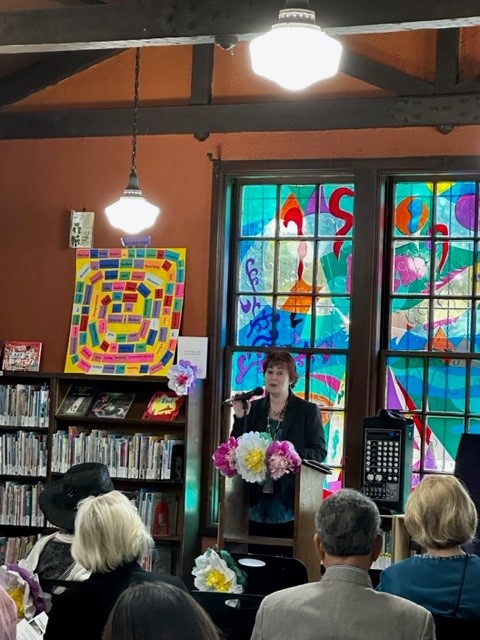
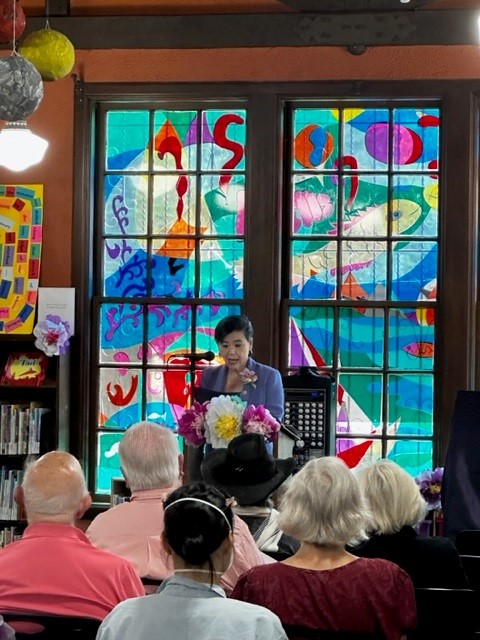
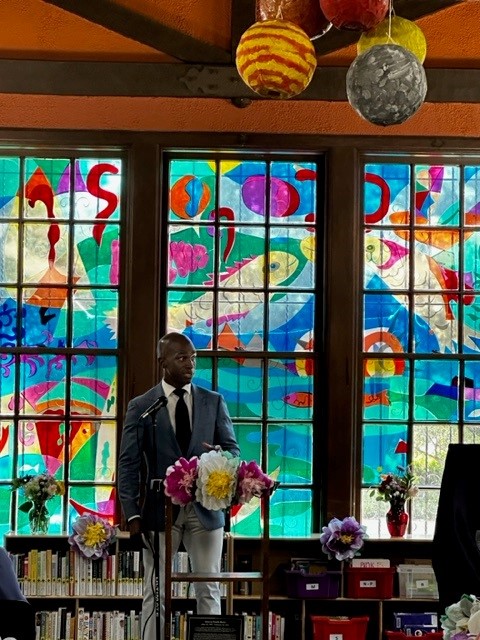
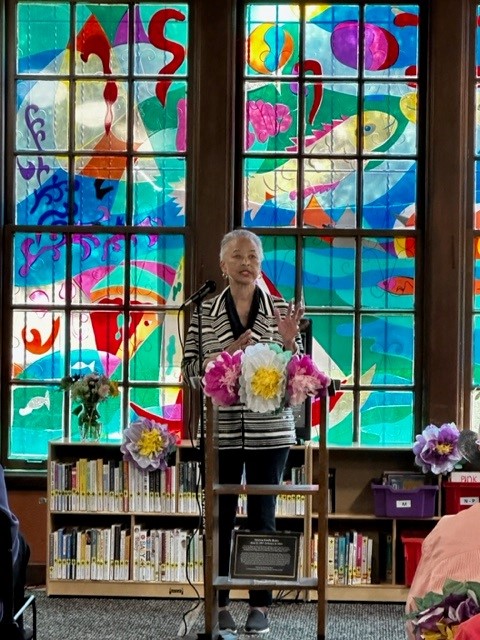
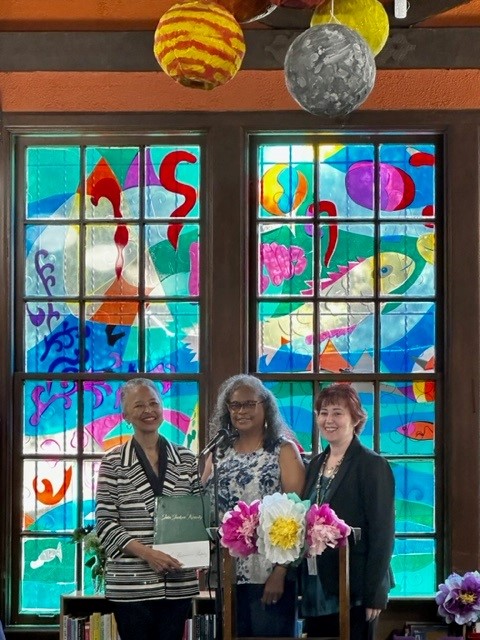
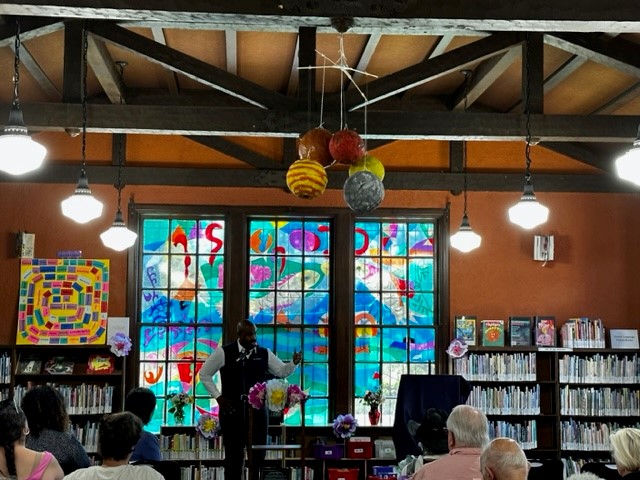
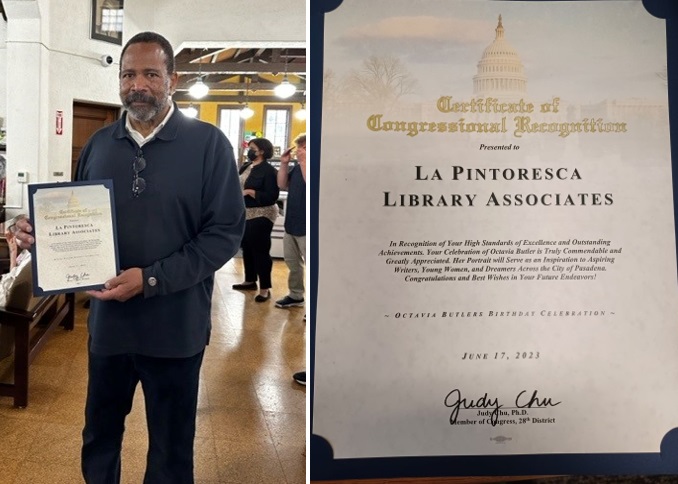
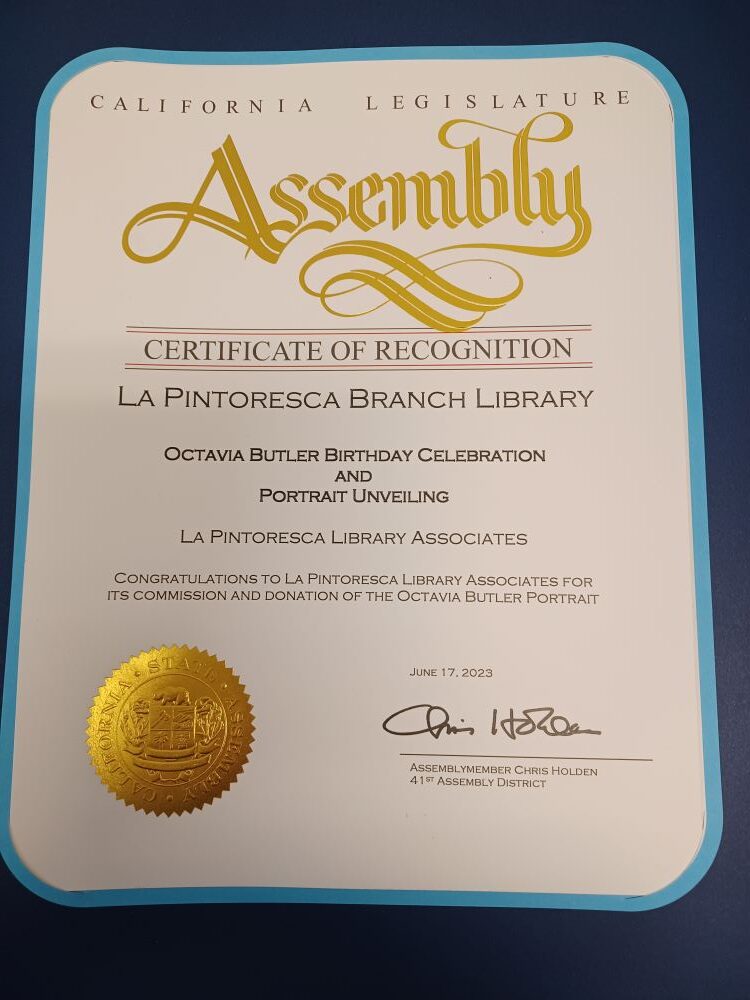
Why did Octavia Butler bring so many people out here to our humble branch in Northwest Pasadena? To explain that, I want to share one of my favorite Butler quotes from her novel Parable of the Sower: “All that you touch, you change. All that you change, changes you.” I want to say a few words about how this library touched Octavia Butler’s life, and how she changed us (and really, all libraries) in return.
Octavia Butler was born right here in Pasadena in 1947, the same year that another notable Pasadenan, Jackie Robinson, broke the color barrier in major league baseball. Butler grew up in this neighborhood at a time when segregation and oppression of Black people was the norm all across America. Her father died when she was very young. Her mother and grandmother worked together to raise her. Her mother worked as a maid, and sometimes used to drop young Octavia off at the Central Library on her way to work, where Octavia would sit and read to her heart’s content. As Octavia got older, she would come to the La Pintoresca Branch, walking here on her own after getting out of school at Washington Junior High School (now renamed Octavia E. Butler Magnet).
Despite struggling with dyslexia, she was passionate about reading. She would read books about horses, and draw horses, and read books by Charles Dickens. She may have found characters in Dickens that she could relate to more easily than to her classmates at school–characters who had lost parents, who had to grow up poor and who felt like outcasts. Octavia never felt like she belonged, being so tall and so shy, and from such a humble background. But in books, she could ride, escape, go on adventures. Books were her wealth.
And Octavia Butler was very fortunate and wealthy in this one aspect: she grew up in a city full of libraries. Unlike most cities, Pasadena decided long ago that every resident should live within walking distance from a library. Our city upheld that promise decade after decade by passing bond measures to keep all those branches open. Butler herself spoke warmly and gratefully about the commitment shown by the City of Pasadena citizens in the 90s to renew the bond measure and fund libraries in a 2005 TV interview for Democracy Now. This City, its taxpayers and citizens, gave a young Octavia the opportunity to have a safe place to walk to after school to read and write daily, and to build for herself a dream to become a writer. We, the citizens and libraries of Pasadena, did that. We can be proud of that.
And we, in return, have been changed. Because her books are in all of our libraries now and in libraries all over the country and world. When Octavia Butler started writing science fiction, the major authors like Asimov, Heinlein, Bradbury, were all white men. Then along comes this young Black woman from Pasadena who just blows everyone away with her poetic, thought-provoking prose and deep insights into history, human nature, the environment, and the future.
Once, when she was a child, Octavia’s aunt told her that “Negroes can’t be writers.” She just said that like it was an obvious fact of life. As crushing as this statement was, an adult Octavia Butler seemed to understand where her aunt was coming from, saying in that aforementioned 2005 interview, that “people do what they see other people doing.”
Well, we should say “most” people, because Octavia was never limited by that. She blazed new trails and showed future generations of young Black men and women that they could indeed be writers. She worked hard every day, rising at 2 a.m. each morning to write, to polish her craft and be a great writer. And by succeeding, she changed the publishing industry, getting them to pay more attention to diverse voices. And she changed libraries everywhere by making our collections more inclusive, more diverse.
Nowadays, I really can’t imagine any public library without Butler’s books in it. What kind of public library would that be? She deserves a permanent place in the canon of American Literature, just as much as Herman Melville, Emily Dickinson, or Ernest Hemingway.
We can be proud that the Pasadena Public Library was able to touch Butler’s life, and give a poor child not only an escape from her hardship but a pathway to greatness. But we can’t take too much credit; Octavia Butler did the work, persisted every day with an indomitable determination to become a great writer. We are the ones who owe her a debt of gratitude. Touched by us, Octavia Butler touched the library, and changed us for the better.
If you can, stop by La Pintoresca Branch Library to see some artifacts on display from Butler’s life. Our display case shows copies of books Octavia Butler signed, her graduation photo in the 1965 John Muir High School yearbook, old (and rare) books she probably enjoyed as a child visiting our library, photos and news clippings, and promotional materials from the One City, One Story program where she was invited to be Pasadena Public Library’s guest speaker, when we chose her novel Kindred as the One City, One Story title for 2006. Tragically, Butler died about a month before her scheduled appearance, and the library had to pivot from welcoming her to memorializing her.
These items were lent to us by the Pasadena Museum of History, the John Muir High School Alumni Museum, and the Central Library Centennial Room. They will be on exhibit until July 31, 2023.
